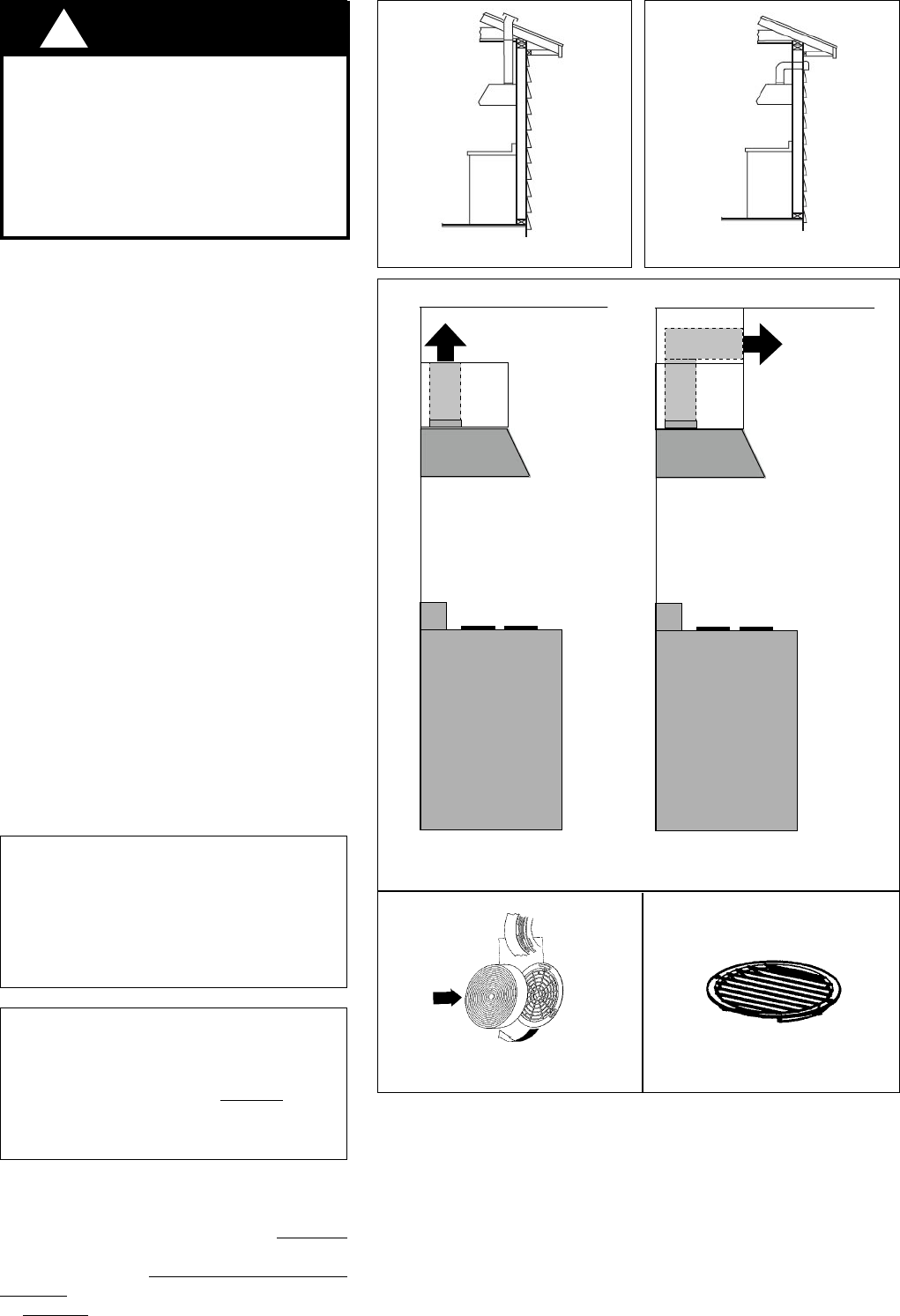
Version 10/05 - Page 5
For best results, use no more than three 90°
elbows. Make sure that there is a minimum
of 24" of straight duct between elbows if more
than one is used. Do not install two elbows
together. If you must elbow right away, do it
as far away from the hood's exhaust opening
as possible.
9 Feet Straight Duct
2 - 90˚ Elbows
Wall Cap
Total System
9.0 feet
10.0 feet
0.0 feet
19.0 feet
FIGURE 5
3.0 feet
5.0 feet
12.0 feet
0.0 feet
45˚ Elbow
90˚ Elbow
90˚ Flat Elbow
Wall Cap
FIGURE 4
CALCULATE THE DUCTRUN LENGTH
The ductrun should not exceed 35 equivalent feet if
ducted with the required minimum of 6" round duct.
Calculate the length of the ductwork by adding the
equivalent feet in FIGURE 4 for each piece of duct
in the system. An example is given in FIGURE 5.
PLAN THE DUCTWORK
The Pellicano rangehood is designed to offer wide
flexibility of installations. The rangehood can be
ducted vertically or horizontally through a 6" round
vent. The unit can also be installed in a recirculating
configuration. FIGURES 1 and 2 show vertical and
horizontal installations for this unit. FIGURE 3 shows
recirculating installation. For direct rear venting,
remove the 10 screws on the outside edge of the
exhaust plate and flip motor to the rear exit.
The Pellicano requires 6" round ductwork. To en-
sure that the blower performs to its highest possible
capacity, ductwork should be as short and straight
as possilbe.
WARNING! BEFORE MAKING ANY CUTS OR
HOLES FOR INSTALLATION, DETERMINE
WHICH VENTING METHOD WILL BE
FIGURE 1 FIGURE 2
ceiling
enclosed soffit
side view
rangehood
cooking surface
upper
cabinet
RECIRCULATING INSTALLATIONS
For recirculating installations, Charcoal Filters are necessary. Remove
all grease filters and set aside. Attach one charcoal filter to each end of
the blower. Each charcoal filter attaches to the black grid on the side of
the blower. Rotate the filter clockwise to install and counterclockwise to
remove (FIGURE 3C). Replace all grease filters. Some ductwork must
be installed to exhaust the rangehood back into the kitchen, either at the
top of the cabinet (FIGURE 3A) or at the face or side of the soffit (FIGURE
3B). A plastic vent grate (FIGURE 3D) supplied with the rangehood can be
used to cover the duct opening. This duct work must not terminate into a
dead air space.
ceiling
open space
side view
rangehood
cooking surface
upper
cabinet
FIGURE 3A FIGURE 3B
FIGURE 3C FIGURE 3D
WARNING
Because of the weight and size of the rangehood
canopy, two or more people are needed to move
and safely install the rangehood canopy.
Failure to properly lift rangehood could result in
damage to the product or personal injury.
PERSONAL INJURY HAZARD
!














